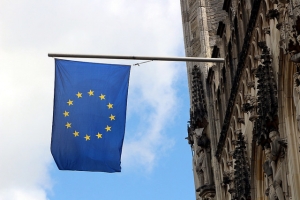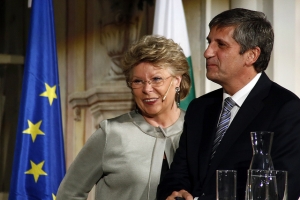Support migrant centric journalism today and donate

The European Commission engaged in a study to determine foreign-born student perceptions of Europe as a destination for higher education. An on-going program (Erasmus Mundus) is designed to attract students from the world to European universities by offering grants, scholarships and other incentives including, in some cases, offers of citizenship to model students who complete advanced degrees.
It is noted that several European countries (the United Kingdom, Germany and France) currently gather the majority of foreign students. This leaves most of the other countries with fewer students, especially the newest member states of the EU and many of the southern European countries.
Over all, Europe compared favorably for perceptions of elegance, cleanliness, organization and modern facilities and outlook. It was also seen as destination where obtaining a visa was much easier and less costly when compared with the United States.
Asian students generally didn't see Europe as their first choice destination, largely due to perceptions of intolerance and the fact that there is no unifying language (English), which was seen as a strong advantage of the U.S. Australia also ranked very high, in ease of obtaining visas, in lower costs, and the fact that the Australian government actively engages in attracting students to Australian universities. The U.S. has no such coordinated program at the government level, although there are many funding opportunities at the federal and state level.
The Erasmus Mundus program for Europe, generally the EEA, became effective in 2005 and is so far seen as successful, although sponsors would like to see it become more successful. It will continue through 2008, with promotion and assistance for students available, at which time it will be re-evaluated and a next phase will be decided on. 230 million euro's are budgeted for the existence of the current program.
In concrete terms, Erasmus Mundus supports about 100 Erasmus Mundus Masters Courses of outstanding academic quality. It provides grants for 5,000 graduate students from third countries to follow these Masters Courses, and for more than 4,000 EU graduate students involved in these courses to study in third countries. The program offers teaching and research scholarships in Europe for over 1,000 incoming third-country academics, and for a similar number of outgoing EU scholars. Finally, Erasmus Mundus supports about 100 partnerships between Erasmus Mundus Masters Courses and higher education institutions in third countries.
The European Commission report indicates that Europe has work to do to compete with the United States and Australia. Perceptions need to be changed so that students begin to consider Europe as a safe destination, as well as a premium opportunity in all fields of education. Currently, most people (erroneously) think of Europe as a destination for culture and arts first, before science, engineering and medicine (for examples).
Also, a strong need is seen to publish and promote English-language programs and the funding available for foreign-students. While people currently see the visa process as easier in Europe, more work needs to be done to make the process easier, as well as inform people about it. Helping to reduce housing and living expenses is seen as a critical task.
During the G8 summit in Moscow this month, strong efforts were made to promote an effort for 'universal credentials' for graduates so that their academic records and accomplishments meet standards across borders. The EU will likely set the cornerstone of such an effort to recognize degrees between countries due to its critical need. Policy and practice of this cooperation will likely be the models followed by other nations such as the U.S., Canada, Australia and New Zealand. Eventually, it will likely be utilized in Asian countries, too.
Related:
• Dublin, Ireland being called the "brain gain" capital
• Immigration and learning a new language
• UK higher education policy changes for foreign students





















